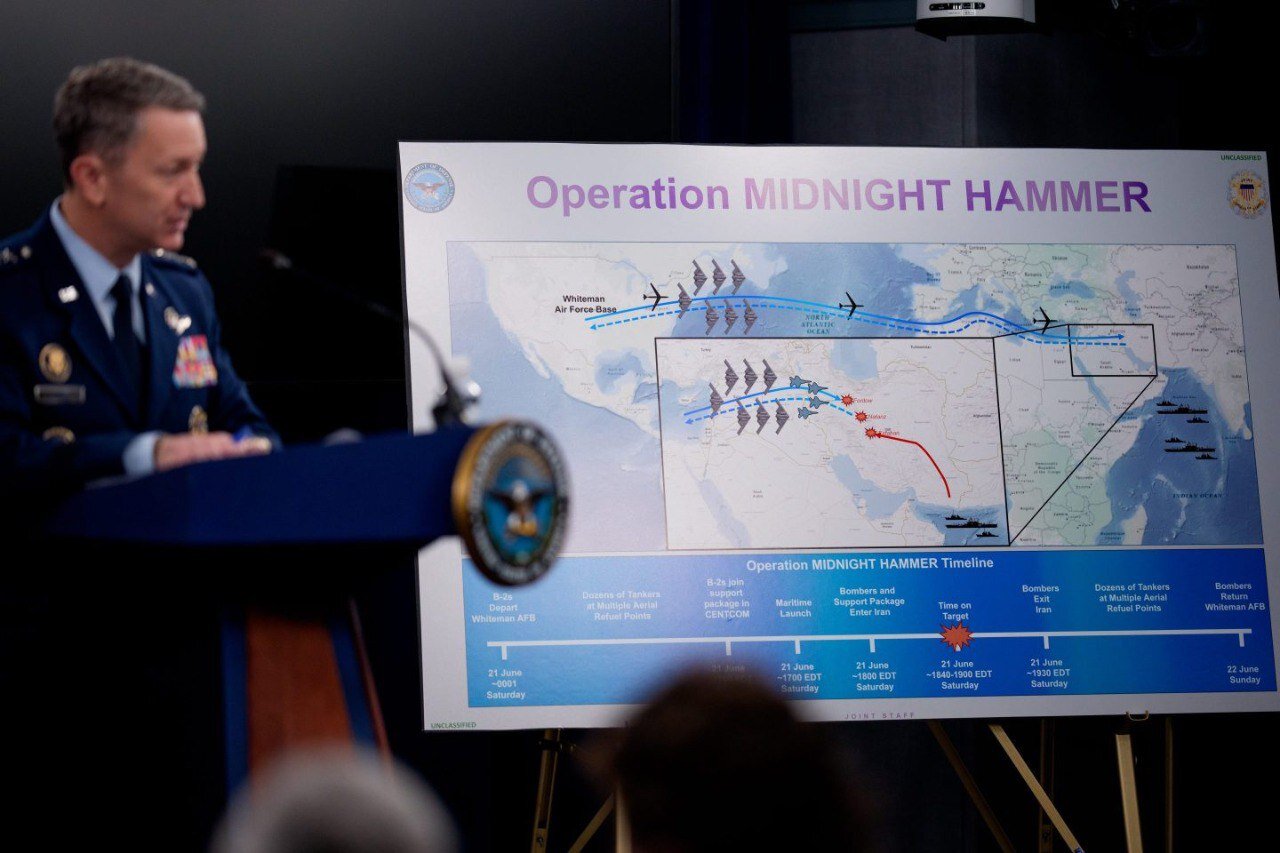US officially enters war, Iran vows: 'You will pay'

TEHRAN – U.S. President Donald Trump did on Sunday what the entire world, most importantly his American voters – had been warning him not to do: He flew U.S. B-2 bombers inside Iran to directly join Israel's war against the country, launching strikes on Iran's nuclear facilities in three locations.
The President then took to his social media platform to announce the attacks were a "spectacular military success" and that Iran’s key nuclear enrichment facilities had been "completely and totally obliterated."
Understanding that Trump is wrong about his attacks' effectiveness isn't difficult. Two sites he struck, Esfahan and Natanz, had been previously attacked by Israel last Friday, and the facilities had been emptied of enriched uranium and critical enrichment technology. His attacks on Fordow were new, but the results weren't. Satellite images show only one entrance and one exit, out of the existing five, was damaged. The main site itself – buried dozens of meters underground and protected by a mountain – remains intact.
Residents filming Fordow from a distance also failed to detect any smoke or fire. Reports from Qom, the closest city to the nuclear facility, observed normal city functioning with people heading to everyday errands unaffected. They seemed to have come to terms with their country fighting a war 10 days after Israel initiated it on June 13.
Iran and the U.S. were participating in indirect nuclear negotiations before the war broke out. Iran’s Foreign Minister Abbas Araghchi, speaking at an OIC meeting in Ankara, stated clearly that what the U.S. obliterated with its Sunday strikes – and earlier ones it helped Israel carry out – wasn't Iran's nuclear facilities, "but rather diplomacy." During the ongoing aerial campaign against Iran, at least 400 civilians have been killed and 2,000 injured according to the latest Health Ministry figures.
The current situation flies in the face of repeated U.S. claims that while informed about Israel’s initial attacks, Americans themselves were not involved. In his first remarks after the Sunday aggression, Iranian President Masoud Pezeshkian stated during a cabinet meeting that while Tehran knew the U.S. was aiding Israel's war against Iran, the direct American strikes proved Washington was the actual instigator all along. "They tried to conceal their involvement initially, but after seeing Israel was getting crushed, they had no choice but to enter the war directly."
Experts believe Israel's initial strikes – targeting top Iranian military leaders in residential buildings – weren't designed for prolonged war. The regime and its American backers asssumed assassinating generals would prevent retaliation and rally Iranians to topple their government. Neither objective succeeded. Instead, Iran unified more strongly, and its Armed Forces began retaliation the same day its top generals were assassinated, pummeling Israel and wreaking havoc in occupied territories under new, less cautious military leadership. Under these circumstances, analysts tell the Tehran Times, the U.S. was forced to intervene to manufacture an Israeli "victory."
What happens now?
Hours after the attack, U.S. Defense Secretary Pete Hegseth broke his silence, stating the Trump administration is not seeking to expand the war and has sent private messages to Tehran requesting a "return to negotiations."
However, Iranians had previously warned that direct American attacks would be met with retaliation. Earlier in the week, Leader of the Islamic Revolution Ayatollah Seyyed Ali Khamenei stated in a video message that any U.S. strikes would bring about "irreparable harm" for the Americans.
It's now clear that Iran will continue targeting Israel, which has been plunged into economic and societal chaos and is facing daily Iranian missile and drone attacks, with limited interception success.
As for the U.S., Iran has several options. These include attacks on one or more of the 19 American bases in the region, housing approximately 50,000 troops or workers, the closure of the Strait of Hormuz, through which a quarter of the world's oil passes, and a change in its nuclear doctrine. Since Iranians have indicated they will adhere to the Treaty on the Non-Proliferation of Nuclear Weapons (NPT), at least for the time being, a direct military response remains the most probable next step.
According to Fars News, Iran estimates that the war could last up to six months and has prepared to sustain it.
All of this has, meanwhile, pushed the region to the brink of a regional conflagration, a situation narrowly avoided numerous times in the past 20 months due to unchecked Israeli aggression in Lebanon, Gaza, and Syria.
Regional countries, including Saudi Arabia, Qatar, Oman, Kuwait, the UAE, and Turkey, said they are concerned about the “lasting consequences” of U.S. strikes on Iran in separate statements they published on Sunday.
Leave a Comment